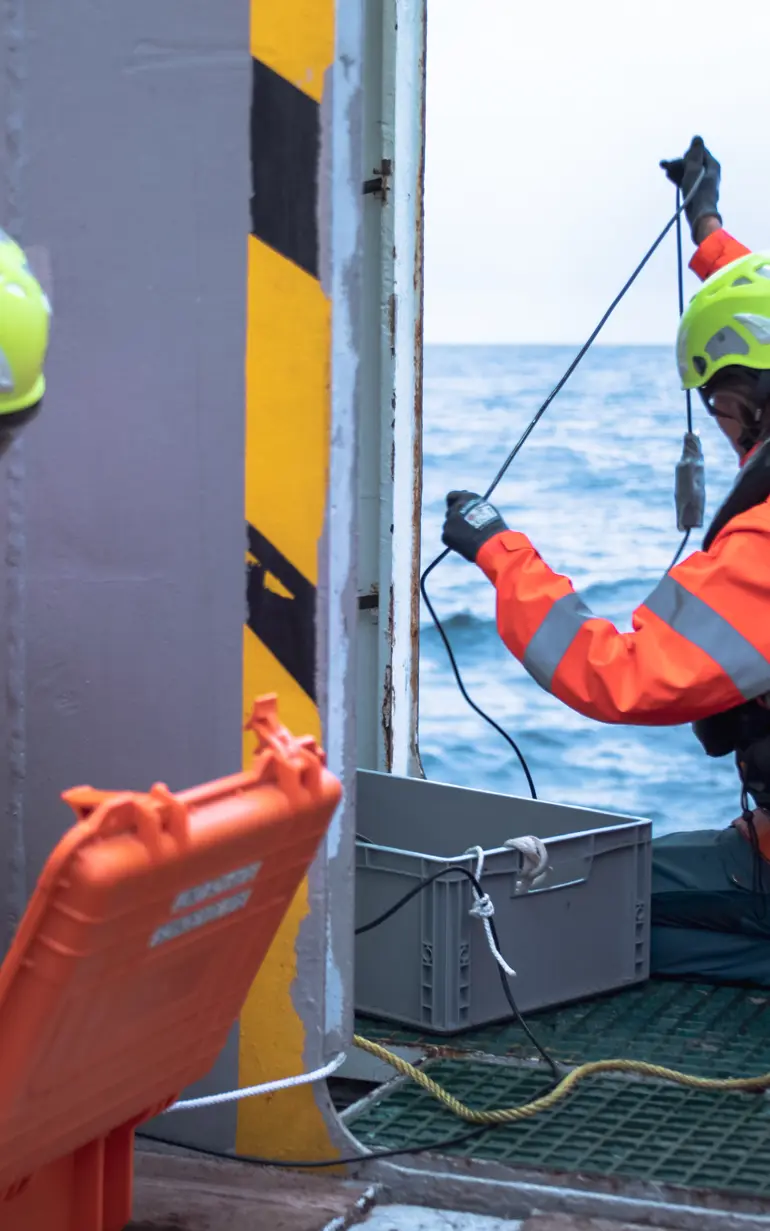
Decades of data will now be made public to strengthen future North Sea marine environment plans
TotalEnergies Denmark together with the Danish Underground Consortium (DUC) and DHI A/S will publish more than 30 years of data on environment and biodiversity trends in the North Sea on an open portal. The aim is to create the best possible basis for developing robust plans to protect the marine environment. With the expected expansion of wind farms, CO2 storage and many other offshore activities, the hope is that other stakeholders in the North Sea will make use of the portal and contribute data.
For decades, the North Sea has been the centre of Denmark's energy production with the extraction of oil and gas and the installation of offshore wind turbines. Now, further expansion of offshore wind farms and CO2 storage are on the way. Together with fishing, agriculture and many other human activities, this affects the marine environment.
DHI and TotalEnergies, on behalf of the DUC, have therefore joined forces to develop a public portal, named the North Sea Environment Portal, where decades of marine environmental data are made available to interested parties. This provides a solid and data-based foundation for taking care of the Danish marine environment and contributing positively to counteracting the biodiversity crisis.
Since the 1980s, the DUC has monitored the marine environment and collected large amounts of data on seabed conditions, water quality, fish, mammals, benthic animals and plants. This information is used for environmental impact assessments of existing and new installations. The data has been continuously reported to the authorities but has so far not been freely available to researchers and the public in a user-friendly format. DUC and DHI have set out to change that.
‘The ocean must be protected in the best possible way. We have a collective obligation to take care of the marine environment, and to do so, we need knowledge. Energy companies like TotalEnergies hold vast amounts of data that can benefit others if made publicly available. We hope that many more from the energy sector will contribute to the portal, so we together can gain an even better image of life in the North Sea,’ says Katrina Povidisa-Delefosse, Senior Environment Advisor at TotalEnergies EP Denmark, who has a PhD in marine biology.
The North Sea Environment Portal will provide access to data on the historical development of the seabed fauna and sediment composition around the platforms in the Danish part of the North Sea, thereby increasing the understanding of the development of the marine environment and of both endangered and invasive species. This will strengthen the entire offshore industry's ability to better protect the seabed habitats in the North Sea now and in the future. A task that has only become more relevant with the expansion of for instance offshore wind farms and CO2 storage that Denmark is facing.
DHI has collected and delivered environmental data to DUC for more than 30 years and is responsible for the design and development of the new portal:
‘The first step in protecting marine life is to understand the condition of the marine environment and how it is developing over time. This requires a lot of data and a great deal of expertise in how data should be processed and communicated to stakeholders, so that it can be used as actual support in decision-making. In this context, we find that transparent and open access to information is crucial for creating action and accelerating the work to safeguard the state of the marine environment and biodiversity,’ says Mikael Kamp Sørensen, Director and Head of DHI's Energy Business Unit.
The recently adopted political agreement on the expansion of 9 gigawatt of offshore wind farms in Denmark sets stricter requirements for sustainability and monitoring of the seabed. Here, the North Sea Environment Portal can be used to both search for historical data and update with new data. This can help to focus efforts and at the same time strengthen the monitoring of the marine environment.
The Ocean Institute (Danish: Tænketanken HAV) therefore welcomes the new initiative: ‘The companies working at sea have direct access to unique data on the marine environment and biodiversity around Denmark. This data is crucial for the actions across our society that can and must help minimise the environmental impact of the development of offshore wind turbines, CO2 storage and other offshore activities. Therefore, we warmly welcome the new marine environment portal,’ says Liselotte Hohwy, Director of the Ocean Institute.
The partners expect to have the portal ready by the end of 2024.
Contact
For press enquiries, please contact Annette Mystek, acmy@dhigroup.com
How can we help?
With our global network of offices, we make sure you get the right answers to your local needs. Tell us about your water challenges and we will get back to you.